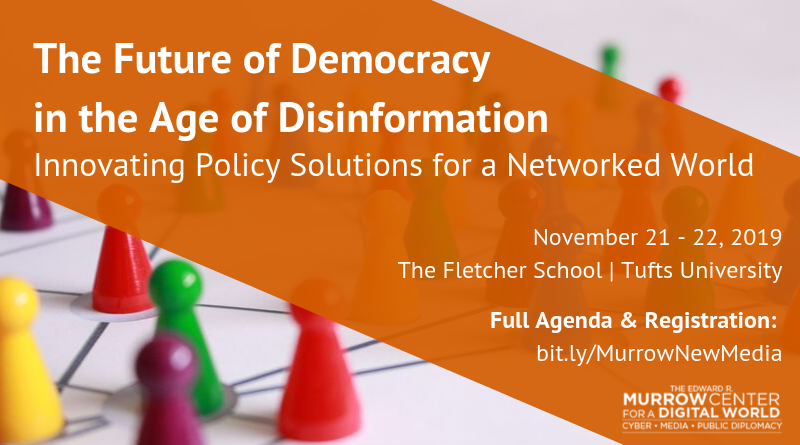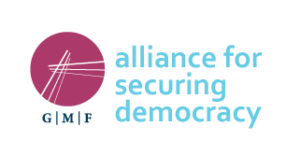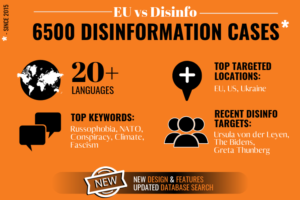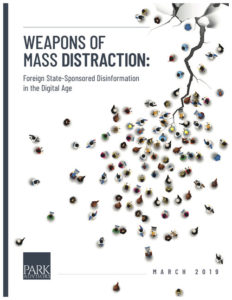
In a world increasingly interconnected by technology, democratic governments are grappling with how to defend against and counter information operations targeting their societies, note Bradley Hanlon and Laura Rosenberger, Research Assistant and Director, respectively, at the Alliance for Securing Democracy.
 Information operations manifest differently depending on specific opportunities and vulnerabilities in the target country, but they employ many common tactics and exhibit similar manipulative behaviors. In many cases, the same “Advanced Persistent Manipulators” execute operations across a range of countries, and continue to operate despite repeated takedowns of accounts associated with these operations, they add in a new paper which explores approaches that democratic countries are adopting to counter these tactics in order to identify common strategies and best practices, including:
Information operations manifest differently depending on specific opportunities and vulnerabilities in the target country, but they employ many common tactics and exhibit similar manipulative behaviors. In many cases, the same “Advanced Persistent Manipulators” execute operations across a range of countries, and continue to operate despite repeated takedowns of accounts associated with these operations, they add in a new paper which explores approaches that democratic countries are adopting to counter these tactics in order to identify common strategies and best practices, including:
- creating cross-cutting structures for policy development and analysis of asymmetric threats;
- engaging and sharing information with technology companies;
- raising public awareness of the threat;
- building societal resilience through media literacy programs;
- constructing and reforming legal frameworks around transparency and election security;
- deterring malign actors through messaging and cost-raising measures; and finally,
- facilitating international coordination to identify threats and share best practices.
 While much of the discussion around disinformation focuses on the role of nation-states, violent non-state actors have also developed fairly sophisticated disinformation capabilities, Cipher Brief notes:
While much of the discussion around disinformation focuses on the role of nation-states, violent non-state actors have also developed fairly sophisticated disinformation capabilities, Cipher Brief notes:
- Disinformation can take many forms, including the use of manipulated images and videos, digital engineering attacks, ‘truthing,’ and ‘social proofing.’
- In 2017, the Islamic State claimed involvement in the deadly shooting in Las Vegas, NV, although the Federal Bureau of Investigation has since dismissed any involvement by the group.
- By relying on disinformation-related capabilities, violent non-state actors can spread fear and have a devastating psychological impact on their target audience, a primary objective of any terrorist or insurgent group.
Get the full Intel Brief here.
 How do state actors now use the internet as a tool to influence public opinion and shape the political terrain, often in malign ways? What are governments doing both to defend against information warfare from without, and control the flow of information from within? And what is the role of the private sector in advancing and ensuring the flow of news and information to a global audience?
How do state actors now use the internet as a tool to influence public opinion and shape the political terrain, often in malign ways? What are governments doing both to defend against information warfare from without, and control the flow of information from within? And what is the role of the private sector in advancing and ensuring the flow of news and information to a global audience?
Through keynote speakers and a series of interdisciplinary panels, a forthcoming conference will address such questions.
The Future of Democracy in the Age of Disinformation
Innovating Policy Solutions for a Networked World
A global, multi-sector conversation exploring the shifting landscape of public diplomacy, cybersecurity and civic engagement in the digital age. RSVP
Thursday, November 21 and Friday, November 22, 2019
Join the conversation using #MurrowNewMedia19
Agenda
Thursday, November 21
Evening Programming TBA
Friday, November 22
Morning Session: National Security and Foreign Policy in the Disinformation Age
- US Information Strategy in the Cyber Era: Promoting US Interests and
Preserving American Values - Balkanization of the Internet: The Growing Popularity of the Chinese
Firewall
Afternoon Session: Innovating Solutions Across Sectors
- Can the Platforms Save Us? The Strengths and Limits of the Private
Sector - Can the Government Save Us? Emerging Global Models of Regulation and Free Speech







